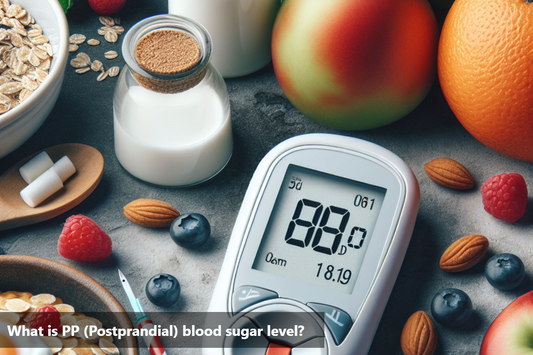Diabetes requires careful blood sugar management, highlighting the need for natural approaches over medication. While drugs are essential, natural methods offer dual benefits of sugar control and well-being. Lifestyle changes and natural remedies can enhance diabetes control and minimize side effects. Embracing a natural approach fosters healthier living and empowers self-care for long-term wellness.
Lifestyle changes for controlling diabetes
Lifestyle changes are essential for controlling diabetes and managing blood sugar levels effectively. Here are some key lifestyle modifications that can help individuals with diabetes improve their health outcomes:
-
Healthy Eating: Eating well is important for controlling diabetes. Instead of processed foods and sugary snacks, focus on foods like fruits, veggies, whole grains, lean meats, and good fats. Get help from a dietitian to make a meal plan that fits your tastes and blood sugar goals.
-
Regular Exercise: Moving your body can help your insulin work better, keep your blood sugar levels in check, and boost your health. Try to be active for at least 150 minutes a week with activities like walking, biking, or swimming, and do some strength exercises at least two days a week. Find activities you like and stick with them.
-
Maintaining a Healthy Weight: Keeping a healthy weight is important for managing diabetes and reducing complications. Losing extra weight, especially around your belly, can improve your insulin sensitivity and blood sugar control. Make small changes to your diet and activity level to lose weight steadily.
-
Blood Sugar Checks: Keeping an eye on your blood sugar levels is vital for managing your diabetes. Use a glucose meter to check your levels throughout the day and track your results. Work with your doctor to set target levels and a monitoring plan that works for you.
-
Taking Medications: If your doctor prescribes medication for your diabetes, make sure you take it as directed. Follow your medication schedule closely, including the timing, dosage, and how often you take it. Don't change your medication without talking to your doctor first.
-
Stress Relief: Stress can affect your blood sugar and overall health. Try relaxation techniques like deep breathing, meditation, yoga, or spending time outside. Find activities that help you unwind and feel good to manage stress better.
-
Regular Checkups: See your doctor regularly to keep tabs on your diabetes and health. Talk about any concerns or changes you notice, and work together to adjust your treatment plan if needed. Stay on top of screenings and shots to prevent diabetes-related issues.
-
Quit Smoking: If you smoke, quitting can greatly improve your health, especially if you have diabetes. Smoking raises your risk of heart disease and other problems related to diabetes. Get help from healthcare pros, support groups, or quit-smoking programs to kick the habit for good.
Natural remedies for diabetes management
- Eating
-
Healthy Foods: Foods high in fiber like fruits, veggies, whole grains, beans, and nuts can help control blood sugar by slowing down how your body breaks down carbs.
-
Good Fats: Add healthy fats like avocados, olive oil, nuts, and fatty fish to your meals. These fats can make your body respond better to insulin and can keep your heart healthy.
-
Spices and Herbs: Some spices like cinnamon, ginger, and turmeric can help regulate blood sugar levels. Try adding them to your meals or taking them as supplements.
- Physical Activity
-
Exercise: Regular exercise can help your body use insulin better, lower blood sugar, and help you manage your weight. Try mixing activities like walking, jogging, or cycling with strength exercises a few times a week.
- Stress Management
-
Reduce Stress: Stress can make your blood sugar go up. Try relaxation techniques like deep breathing, meditation, or spending time in nature to lower your stress levels.
- Sleep
-
Enough Sleep: Sleeping well for 7-9 hours each night can help control blood sugar and support your overall health.
- Weight Control
-
Maintain a Healthy Weight: Losing extra weight, especially around your belly, can make your body respond better to insulin. Focus on healthy food and regular exercise to keep a healthy weight.
- Specific Foods and Supplements
-
Apple Cider Vinegar: Some studies suggest it can improve insulin sensitivity and lower blood sugar. Try having diluted vinegar before meals or in your dressings.
-
Bitter Melon: This veggie can help lower blood sugar levels. You can eat it as a vegetable or drink it as juice.
-
Green Tea: Drinking green tea regularly can help control blood sugar levels. It's good for insulin sensitivity and reducing the risk of type 2 diabetes.
-
Chromium: This mineral helps your body use insulin better and manage glucose. It might lower blood sugar, especially if you're low on chromium. More research is needed.
-
Probiotics: These good bacteria can help your gut health and improve insulin sensitivity. Eating things like yogurt, kefir, or fermented veggies can be good for you.
Monitor and track progress
-
Blood Sugar Levels: Regularly measure blood sugar levels with a glucose meter before and after meals, exercise, and bedtime. Keep a log to track patterns over time.
-
HbA1c Levels: Work with your healthcare provider to set target HbA1c levels and regularly monitor progress.
-
Symptoms: Pay attention to changes in physical well-being that may indicate fluctuations in blood sugar levels or complications.
-
Medication Adherence: Take prescribed medications as directed to achieve optimal blood sugar control.
-
Diet and Nutrition: Monitor dietary habits by keeping a food diary and consider consulting with a dietitian for a personalized meal plan.
-
Physical Activity: Keep track of exercise levels and monitor changes in fitness over time.
-
Weight Management: Regularly monitor weight and body composition to manage diabetes effectively.
-
Stress Levels: Manage stress effectively to maintain overall health and well-being.
Bottom Line
In conclusion, managing diabetes without medicines is possible and effective by combining lifestyle changes and natural remedies. By adjusting diet, exercising, managing stress, and improving sleep, individuals can control their health without medications. Natural remedies like herbs and supplements can complement lifestyle changes for managing blood sugar levels. Monitoring blood sugar levels and adjusting efforts as needed is key to personalized diabetes management. Embracing a holistic approach with lifestyle changes and natural remedies empowers individuals to effectively manage diabetes in the long term.
This Blog post is an initiative by DiabeSmart, to provide accurate and Nutritionist / Doctor approved information related to Diabetes. DiabeSmart is India's first Food brand designed specifically for Diabetics, that has been clinically tested on Diabetics and Pre-Diabetics to deliver 55% - 70% lower Sugar spikes. DiabeSmart is part of Lo! Foods - India's leading brand for Everyday Functional Health foods.








